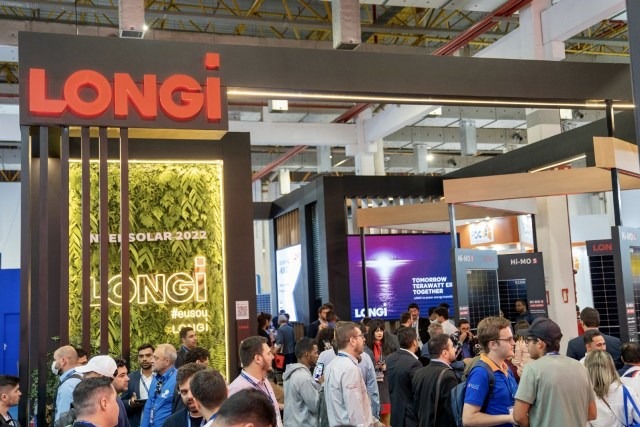LONGi Green Energy Technology, a leading player in the solar industry, has achieved a groundbreaking milestone by setting a new world record for the efficiency of crystalline silicon-perovskite tandem solar cells.
The Chinese solar giant announced today that its innovative technology has reached an impressive efficiency of 33.9 percent, surpassing the previous record of 33.7 percent set by the King Abdullah University of Science & Technology (KAUST) in May this year.
The achievement has been independently verified and documented in the latest certification report from the U.S. National Renewable Energy Laboratory (NREL). LONGi’s crystalline silicon-perovskite tandem solar cells have not only broken the previous record but have also become the current highest-efficiency solar cells globally.
This groundbreaking efficiency of 33.9 percent marks a significant advancement from LONGi’s previous milestones, with the company announcing 31.8 percent efficiency at the SNEC 2023 on May 24 and 33.5 percent at the InterSolar Europe 2023 on June 14.
The latest achievement has even surpassed the Shockley-Quieser (S-Q) theoretical efficiency limit of 33.7 percent for single-junction solar cells, showcasing the tangible advantages of crystalline silicon-perovskite tandem solar cells over their single-junction counterparts.
This accomplishment reinforces LONGi’s commitment to pushing the boundaries of solar technology. In November 2022, the company set a world record in the global crystalline silicon single-junction cell field, achieving an efficiency exceeding 26.81 percent. Now, with the new world record of 33.9 percent for crystalline silicon-perovskite tandem solar cells, LONGi has established itself as a dual champion in solar cell efficiency.
Notably, this marks the first time since 2015 that a Chinese company has broken the efficiency record for crystalline silicon-perovskite tandem solar cells. LONGi’s ongoing commitment to research and development continues to position China as a key player in advancing solar energy technology on the global stage.

